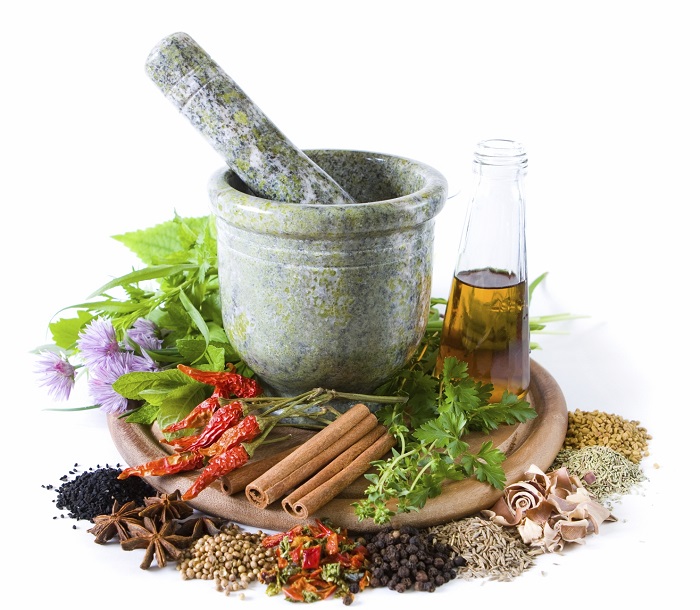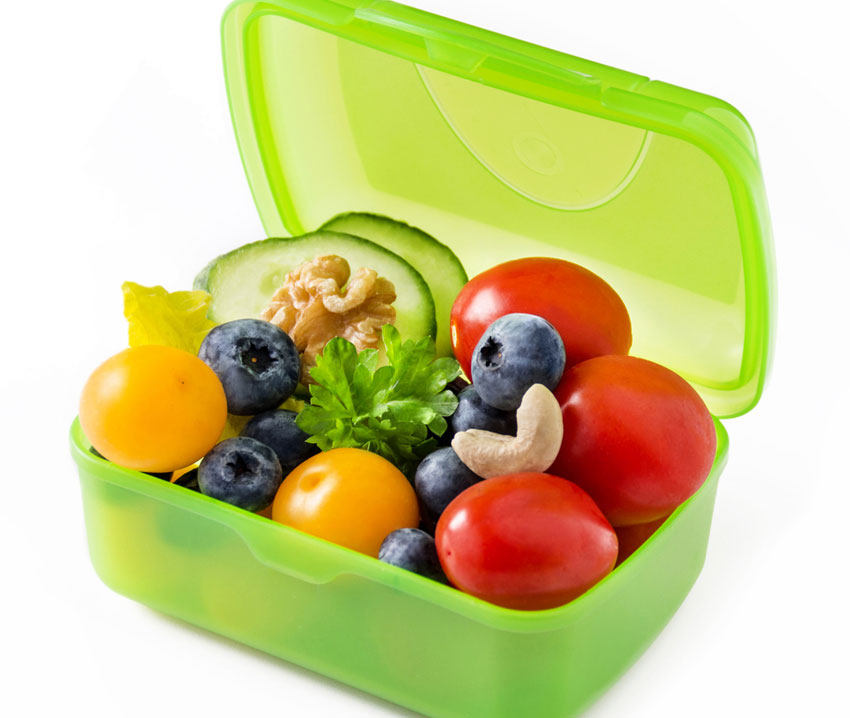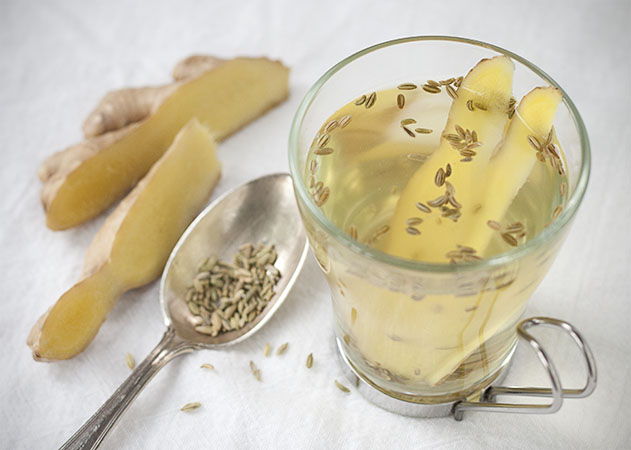It’s simple, if you don’t have healthy food in your kitchen, desk, or truck (or wherever you are when you get hungry, for that matter), getting healthy is going to be really difficult.
That’s why it’s important to make regular shopping trips to stock up on healthy staples that you can build many different meals and snacks with.
Below is a shopping list that will build a healthy foundation for your diet, but of course this list is not exhaustive, so feel free to add or exclude items as you see fit! If you’re a grocery shopping, healthy eating pro, this won’t be new to you, but if you’re struggling to get started, keep reading!
Oils, Spices, sweeteners, condiments:

Herbs and spices with mortar and bottle with oil
- Avocado oil, a healthy go-to fat for cooking. It has a higher smoke point than olive oil and a neutral flavor. Use extra-virgin olive oil for finishing foods, such as a drizzle on your cooked veggies or salad. Steer clear of Canola or vegetable oils.
- Fresh or dried basil, oregano, and thyme, cayenne pepper, cumin or curry, and cinnamon. These will transform thousands of meals and can create a homemade dressing with just oil and lemon juice!
- Raw honey & maple syrup: skip the sugar and use these instead, in small amount of course!
- Salsa, not for nachos, but for marinating meat (especially chicken) or even adding to salad!
- Low sugar, minimal ingredient barbeque sauce. These can be tough to find, so check out a health-minded grocer like Farm Boy or Whole Foods.
- Hot sauce of your choosing, which is a relatively healthy way to boost flavor and spice
Pantry and dried goods:
- Dried or canned lentils, chickpeas, black beans, and kidney beans. They’re incredibly filling and can be added to soups, stews, salads, and more.
- Canned tomatoes, another great addition to soups and stews, and for easy, homemade sauce
- Plain oats are a great breakfast staple when added to your choice of hot liquid (water, milk, non-dairy milk), and mix-ins, such as berries, walnuts, dark chocolate, coconut, etc.
- Basmati or jasmine rice and/or quinoa. Buy them plain, not a flavoured packaged product, and add to soups, stews, or a stir fry. Great for keeping in the truck, as they are easy to store!
- Cashews, almonds, or walnuts: Full of healthy fats, portable, take up little space, and easy to snack on. Add them to salads, oats, or a stir fry too!
- Vegetable broth, in a liquid or dried form. Great for soup, or use it to cook your grains and add flavour to other dishes. If you can, go for an organic brand to limit the unnecessary ingredients.
- Coconut flakes, which may seem a little out of place here, but they are great for topping those oats I just talked about, or using as an alternative to breadcrumbs to coat chicken or shrimp
Dairy:
If you don’t eat dairy or don’t digest it well, skip past this section. I don’t recommend eating a lot of dairy products, but if you choose to, these are the best options:
Butter: Use avocado or olive oil over butter when you can, but moderate butter consumption isn’t an issue. Just stay away from margarine!
Milk: Choose 1% or 2% milk.
Yogurt: Always choose regular fat yogurt (between 3-7% depending on the brand) over 0%, as it will be easier to digest and absorb the nutrients from. Also buy unsweetened yogurt, and sweeten with a little honey or fruit.
Cheese: Choose cheese’s that say fresh, raw, organic, or unprocessed, such as feta or cottage cheese. Goat cheese and pecorino romano (sheep’s milk) are typically easier to digest than cheese from cow’s milk, and have a lot of flavor, allowing you to use less.
Meat: Quality over quantity here. I recommend grass fed beef and pasture raised chicken whenever possible, so find a local farmer or supplier to purchase from. Pick up some leaner and skinless cuts of meat, and choose white meat over red more often. Avoid processed and deli meats as much as possible. Wild salmon, halibut, and trout are great fish options, as well as shrimp.
Produce:
Anything goes here, so buy what’s fresh, on sale, and what you enjoy eating. However, we know it can be overwhelming, so here are some of our favourites, to get you started:
- Garlic, onions, celery, carrots: a strong foundation for thousands of meals when used together, and great used on their own. Each one is a versatile nutritional powerhouse.
- Sweet potatoes and Yukon gold potatoes – yes, potatoes are good for you!
- Spinach, kale, collard greens, spring greens: probably not your first choice as a kid, b
- ut you’re a grown up now, and you know it’s time to eat them. Add to salad, soup, smoothies, casseroles – sneak them into as many dishes as you can.
- Broccoli and cauliflower, perfect for snacking with hummus, roasting, steaming, stir-frying, adding to soups, etc.
- Brussels sprouts, beans, mushrooms, zucchini, peppers…the list goes on!
- Avocados are quite possibly the healthiest source of fat on the planet. To choose a ripe avocado, you want them to be dark and give slightly when squeezed, but not be mushy.
- Bananas have gotten a bad rap for their sugar content, don’t fear them, as their nutritional value and healing properties are incredible.
- Berries of all kinds, fresh or frozen (unsweetened), are incredible foods that are great on their own or added to oats, yogurt,
- Apples, oranges, kiwis, pineapple, papaya… you name it! Buy it! Don’t fear the sugar in fruit. Use it for breakfast, snacks, smoothies, healthy desserts… however you like!
- Lemons and limes, for adding to water, tea, homemade salad dressings, marinades, or brightening up any dish!
- Ginger, which is incredibly affordable, healthy, and perfect for grating or slicing into tea, stir fry dishes, smoothies, soups, and more.







Leave A Comment